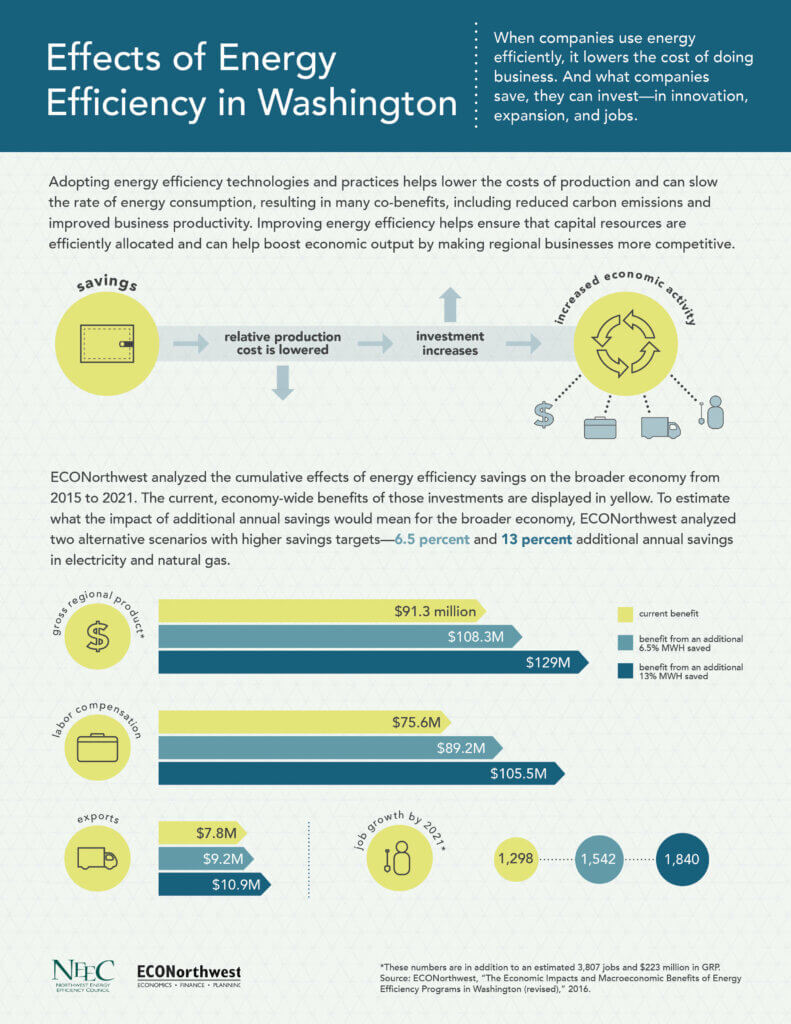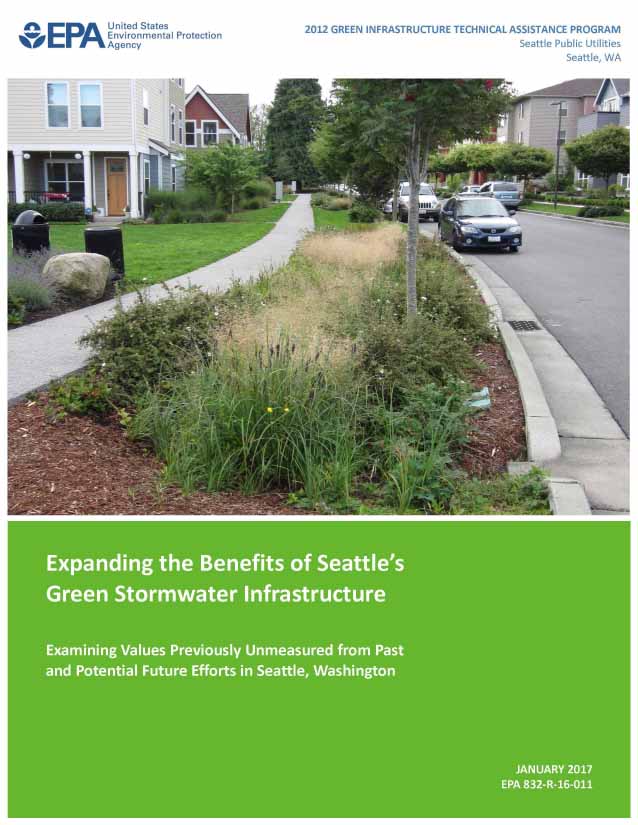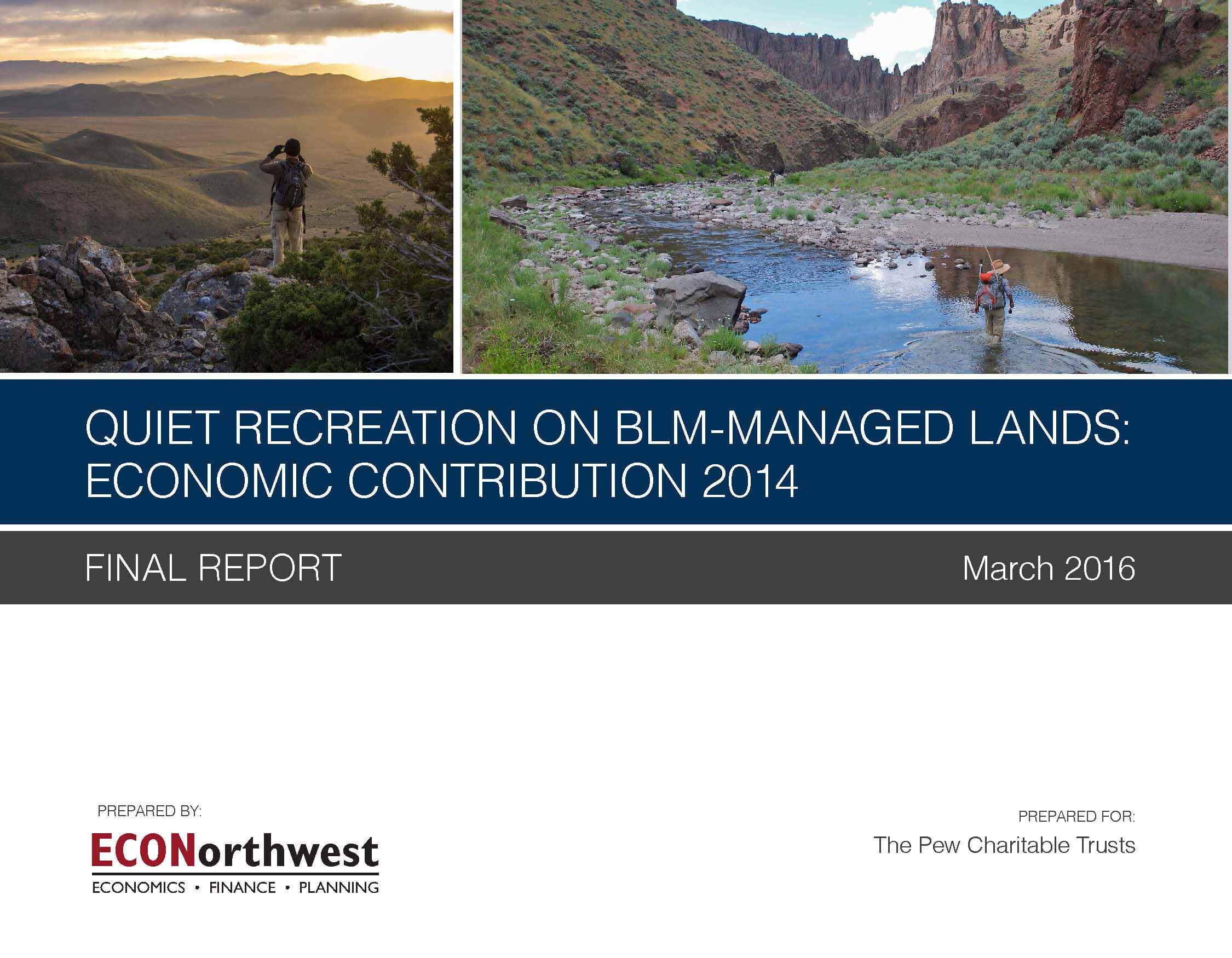Public lands managed by the Bureau of Land Management (BLM) provide a wealth of recreation opportunities—from camping, hiking, and hunting to off-highway vehicle use, boating, and snowmobiling. The Pew Charitable Trusts commissioned ECONorthwest to describe the economic contribution of “quiet recreation” on these lands in the western U.S. and Alaska. Quiet recreation refers to recreation that generally does not involve significant use of motorized equipment, so it includes camping, hiking, hunting, and fishing trips that do not involve the use of power boats, all-terrain vehicles, etc.
For this analysis, ECONorthwest developed methods to estimate the amount of quiet recreation on BLM lands. We relied on visitation data from the BLM and other data on recreational use to estimate the amount of quiet recreation in 2014. We estimated there were 38.5 million trips to BLM lands in 2014 for the primary purpose of quiet recreation. We also used recreation-spending data primarily from the National Visitor Use Monitoring Program which uses extensive survey data to describe spending patterns of recreation visitors on national forest lands.
This study is the first ever to quantify both the amount of quiet recreation and the spending associated with quiet recreation specifically on BLM lands. We found that the majority of visitors to BLM lands enjoyed non-motorized recreation. The results focus on the spending-related effects; they do not capture the economic value to recreational visitors or others who benefit from the range of goods and services that may be associated with or supported by quiet recreation opportunities on BLM-managed lands.




